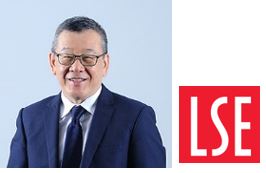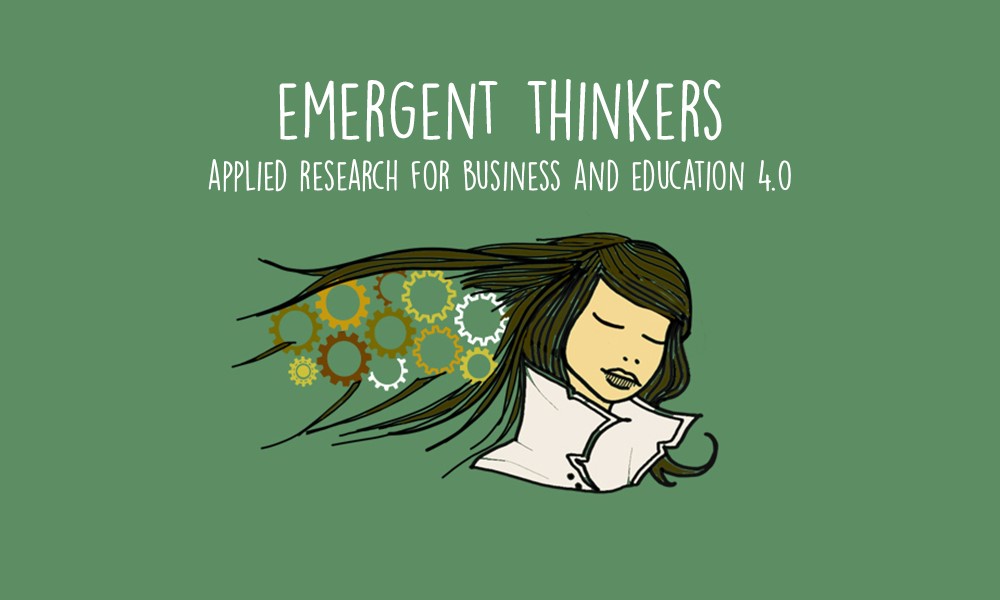
Forthcoming:
Phenomenology in Action for Researching Networked Learning, Research in Networked Learning Series, Springer
Editors: Johnson, M.R., Healey-Benson, F., Adams, C., & Bonderup Dohn, N. (2024)
2024
(2025) Kirby, D.A., & Healey-Benson, F., Circular Entrepreneurship Ecosystems: Theory and Practice. To be published by Edward Elgar. Editors: Joao J.M. Ferreira, Magnus Klofsten, and David Urbano.
(2025) Healey-Benson, F., & Kirby, D.A. In Reimagining Education through Entrepreneurship: An International Showcase of Leadership and Collaboration to Educate for a Sustainable Future. To be published by Edward Elgar. Editors: Lene Foss, Colette Henry & Wai Yi Feng.
Published

Healey-Benson, F., & Kirby, D.A. (2024). The Harmonious Entrepreneurship Online Global Student Competition: An Example of Meaningful Extracurricular Entrepreneurship Education. In S. Preedy & Beaumont, E. (Eds). Extracurricular Enterprise and Entrepreneurship Activity: A Global and Holistic perspective.(Contemporary Issues in Entrepreneurship Research, Vol. 19), Emerald Publishing Limited, Leeds, pp. 45-57. https://doi.org/10.1108/S2040-724620240000019004 April 2024

Grigg, R., Healey-Benson, F. , Israel, H., McCallum, E., & Oksannen, L. (2024). ‘Reflecting on the potential of EntreCompEdu to stimulate teachers’ entrepreneurial thinking and activity’. In S. Costa, A. Groen, F. Liñán, & A. Fayollee (Eds). Stimulating Entrepreneurial Activity in a European Context: Reflections on Programs, Courses, and Cases. European Research in Entrepreneurship series, Edward Elgar Publishing.
19 March 2024: https://www.e-elgar.com/shop/gbp/stimulating-entrepreneurial-activity-in-a-european-context-9781802200676.html

Kirby, D.A., El-Kaffass, I., & Healey-Benson, F. (2023). The leopard’s spots are changing: An evolutionary approach to ecological sustainability. In J.J. Ferreira & P.J. Murphy (Eds.), Bleeding-Edge Entrepreneurship: Digitalization, Blockchains, Space, the Ocean, and Artificial Intelligence (Contemporary Issues in Entrepreneurship Research, Vol. 16), Emerald Publishing Limited, Leeds, pp. 31–49. https://doi.org/10.1108/S2040-724620230000016004

Kirby, D.A., El-Kaffass, I., & Healey-Benson, F. (2022). Integrating harmonious entrepreneurship into the curriculum: Addressing the sustainability grand challenge. In K.A. Gamage & N. Gunawardhana (Eds.), The Wiley Handbook of Sustainability in Higher Education Learning and Teaching (pp. 207-220). Wiley-Blackwell. ISBN: 978-1-119-85283-4

Healey-Benson, F. (2021). Authentic vlogs. In S. Hrastinski (Ed.), Designing Courses with Digital Technologies: Insights and Examples from Higher Education (1st ed., pp. 118-122). Routledge. https://doi.org/10.4324/9781003144175

Excited to share the publication of a new book on sustainability, as a contributing author on the sub-themes of education, future of work, and artificial intelligence.
‘Applying Sustainability’ brings together the principles and practices of sustainable development in the context of global challenges that include climate change, food security, and a widening digital divide.
The excitement over the 4IR has driven critical attention to the future of industries driven by data management, automation of processes, and the introduction of robots. They bring a new set of sustainability challenges.
Addressing these complex sustainability challenges must be inter-disciplinary and multidisciplinary, drawing upon the relevance and application of economics, environment, and society. A transformation of corporate and societal mindsets and attitudes is required for the world community to realise a more sustainable future.
The impact of technological change on sustainable development involves the displacement of humans by robots but requires the advancement of science to sustain humankind. To avoid a non-dystopian future, however, requires the continuing investment in human skills and a transformative education system.
‘Applying Sustainability’ advocates change, not only in business models, but the way businesses, governments, individuals, multinational agencies accept and integrate sustainability principles. Concerns on diminishing resources and waste cannot be left to high-level policy debate alone; conservation management must be taught, to build both capacity to change and capability to manage. There are new opportunities to re-chart the sustainability future which considers the best use of robotics, artificial intelligence, and new applications of digital technology.
The book reminds the world that to overcome the environmental and social challenges, much more needs to be done. Change brings a departure from the norm. But nothing less than what sustainability stands for matters.

https://emergentthinkers.com/2019/10/01/their-future-our-hands-new-book-inspires/
Available in copy or kindle now: https://www.amazon.co.uk/

Mr Tay Kay Luan is the vice-chancellor of the International University Malaya-Wales. He has also held leadership roles at the Asian Institute of Chartered Bankers, ACCA, Hay Group (now Korn Ferry Hay), Andersen Consulting (now Accenture) and Price Waterhouse (now PWC).
My fellow graduate from the London School of Economics (LSE), I am proud to have worked with Tay on a project that effects the most important issues of our time.
Thank you for your visit to Emergent Thinkers. Com
Felicity
https://www.linkedin.com/in/kay-luan-tay-31272714/
